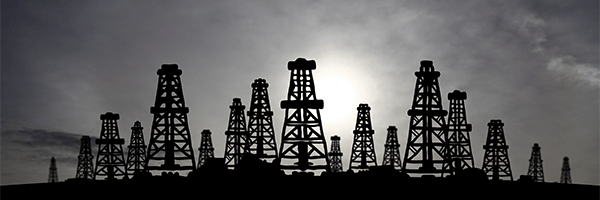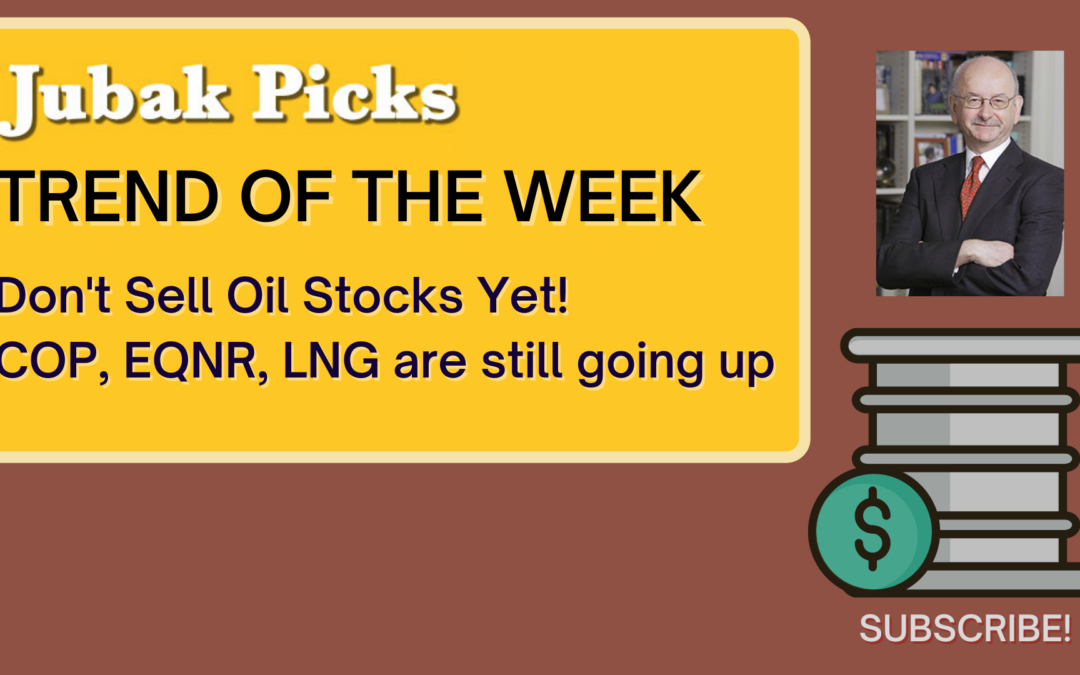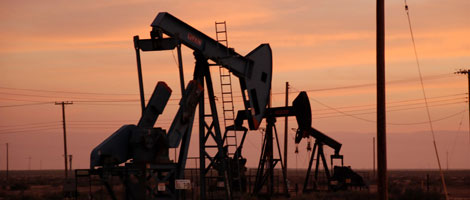LNG

June 28, 2023 | Daily JAM, LNG, UNG, Volatility |
Today’s video is The Long Hot Summer and Natural Gas. If you’ve been following the weather, you know about the huge heat bubble in Texas where temperatures have reached 120 degrees. High temperatures combined with humidity of around 80% can cause serious health problems and even death. The National Weather Service expects this weather to continue and to spread to other parts of the United States, resulting in more and more people staying inside with the air conditioning cranked all the way up. This spike in temperatures is creating a similar spike in natural gas prices. On June 26, we hit a 16-week high for natural gas prices, and July natural gas futures (for July delivery) have been up 14 out of the last 17 sessions. This price surge has two causes ad is operating on two time frames. In the immediate term, the increased air conditioning use stresses the grid, leading to a reliance on natural gas back-ups to supply the energy needed to cover these demand peaks. This, of course, creates a lot more demand for natural gas in the short term. The second thing is a surprising change in long-term thinking about the future of natural gas. I’m seeing a new wave of 20-year supply contracts from places like China and Japan, suggesting countries are thinking that natural gas has a longer future as a transitional fuel as the world moves toward more sustainable energy sources. The two stocks I would look at here are Cheniere Energy, (LNG) and United States Natural Gas Fund, (UNG). Cheniere is up 6% in the last month and is a good way to play the long-term trend in natural gas use. UNG hit a potential bottom in June and is up 16% in the last month. The bigger gain is a result of the ETF being hammered due earlier in the year. UNG is a far more volatile buy, with much higher risk, so if you’re uncomfortable with risk, stick with the more modest but more predictable gains from Cheniere.

June 27, 2023 | Daily JAM, GNRC, LNG, Volatility |
Heat advisories now stretch from northern Florida to southern New Mexico, and excessive-heat warnings have been issued for much of Texas and parts of New Mexico and Arizona and along the Gulf Coasts of Louisiana, Mississippi and Alabama. New Orleans is included in the zone of greatest heat risk, with actual air temperatures around 100 degrees and humidity that will push heat indexes to 115 degrees. Excessive-heat watches have been posted for the lower Mississippi Valley and include Memphis and Nashville; Huntsville and Birmingham; Jackson, Mississippi; Little Rock, Arkansas; and Poplar Bluff, Missouri. “Extreme heat and humidity will significantly increase the potential for heat-related illnesses,” cautioned the National Weather Service, “particularly for those working or participating in outdoor activities.” The heat will relent somewhat into early next week for portions of the Southeast and Mid-South, but there is no immediate end in sight for Texas, where blistering and brutal conditions look to continue as a heat doe lingers over Texas. And this is only the latest U.S. manifestation of a global problem.

August 12, 2022 | Daily JAM, LNG, Morning Briefing, TELL, UNG, Volatility |
Yesterday, August 11, U.S. liquefied natural gas (LNG) exported Freeport LNG said it was still pulling in small amounts of natural gas from pipelines at its shuttered LNG export plant in Texas to fuel a power plant. And, this is the important part, it still expects the liquefaction plant, which shut due to a fire on June 8, to return to at least partial service in early October. Thursday, U.S. gas futures jumped about 8% on talk of increased gas flows to the Freeport LNG plant, a drop in gas output, and forecasts for more demand for the fuel over the next two weeks than previously expected. The U.S. Natural Gas Fund (UNG) gained 6.06%.

June 23, 2022 | Daily JAM, LNG, Videos, Volatility |
My Quick Pick this week is Cheniere Energy (LNG), a liquified natural gas producer that I currently own in my Volatility Portfolio on JubakAM.com and plan to add to my Jubak Picks portfolio as well. The stock has fallen as U.S. natural gas prices have taken a hit after a fire at the Freeport liquified natural gas facility that has caused a backup in U.S. LNG exports. I think it’s a great time to get in on this long-term story at Cheniere, which just announced that it had given the go-ahead to the construction of a new LNG chain at its Corpus Christi facility. That chain won’t be in operation until 2025 but I see the demand for U.S. LNG continuing to rise through then.

May 3, 2022 | COP, Daily JAM, EQNR, Jubak Picks, LNG, Morning Briefing, PXD, Volatility |
Normally at this time of year natural gas prices retreat and companies actually stash natural gas in storage for use durin hurricane outages in the fall and winter heating season. Not this year, however. Today natural gas prices in the U.S. hit a new 18-year high. At 11:20 a.m. New York time natural gas for June delivery climbed to $8.08 per million BTUs, up 8.12% on the morning

April 26, 2022 | Daily JAM, EQNR, LNG, Volatility |
Russia’s Gazprom has told Poland’s government that it will stop supplying natural gas to Poland beginning on Wednesday after Poland refused to pay the supplier in roubles. Western sanctions have made it almost impossible for Russian companies to collect payments in dollars or euros. The decision to stop natural gas supply to Poland also followed on the country’s announcement on Tuesday that it was imposing sanctions on 50 entities and individuals including Russia’s biggest gas company. Polish ministers told a press conference that Poland had sufficient supplies of gas to weather the interruption

April 21, 2022 | COP, Daily JAM, EQNR, Jubak Picks, LNG, Morning Briefing, PXD, TELL, Volatility, XLE |
Today, April 21, reports from a number of different sources are pointing to lower oil production–which will mean higher oil prices. Even from current levels. And oil prices are significantly higher in the past three weeks. At 3:00 p.m. New York time today U.S. benchmark West Texas Intermediate traded at $103.44 a barrel, up 1.61% on the day. On April 11 West Texas Intermediate traded for just $94.29 a barrel.

March 28, 2022 | COP, Daily JAM, EQNR, Jubak Picks, LNG, Videos, Volatility |
Don’t sell those oil stocks yet! Back at the beginning of the year, I anticipated that coming conflict between Russia and the Ukraine would drive up the price of oil, and the stocks I added to my portfoliohene stocks (COP, EQNR, LNG) have all been up big. But, I don’t think it’s time to sell yet. Why? Summer. Summer is the big driving season in the Northern Hemisphere, and right now (in what’s called the “shoulder season”) reserves of gasoline are supposed to be replenished in anticipation of summer. But that’s not happening due to Russia-Ukraine, and I think with summer we will see prices for oil spike even higher. That’s why I wouldn’t sell these stocks yet. (And that’s despite of the selling today, March 28, on more lockdowns in China)

March 25, 2022 | COP, Daily JAM, EQNR, Jubak Picks, LNG, Morning Briefing, Volatility |
The United States and Europe have reached an agreement to expand U.S. supplies of natural gas to Europe in an effort to reduce Europe’s dependence on Russian natural gas.
Details are bit vague. And wishful thinking is a big ingredient. The basis problem is that Russia supplies Europe with 150 billion cubic meters of natural gas every year via pipelines. U.S. and other sources can’t match increase production to that level and the infrastructure to get the gas to Europe simply doesn’t exist. Yet the goal has now been put on paper and the agreement promises that Europe will get at least 15 billion cubic meters of additional LNG supplies by the end of the year. Even though it is not clear where the natural gas welcome from or how ti will be delivered.

March 23, 2022 | COP, Daily JAM, EQNR, Jubak Picks, LNG, PXD, Volatility |
Oil rallied again today with U.S. benchmark West Texas Intermediate up 4.79% on the day to $114.79 a barrel and international benchmark Brent up 5.12% to $121.39 a barrel. So, natural, oil and gas equities stocks are up today. And the broader market is down. What else isn’t new?

March 7, 2022 | COP, Daily JAM, EQNR, Jubak Picks, LNG, Morning Briefing, PXD, Top 50 Stocks |
I suppose there is something else that could add to the supply of bad news today on oil supply, but we’ve already got a full dance card At 2 P.m. in New York U.S. crude benchmark West Texas Intermediate traded up 5.07% to $121.55 a barrel; international benchmark Brent crude was up 6.24% to $125.48 a barrel. Where to start?

February 27, 2022 | COP, Daily JAM, DAL, EQNR, Jubak Picks, LNG, PXD, Volatility |
On Saturday the European Union nations that control SWIFT, the dominant global network connecting banks, announced that they would expel some specific Russian banks from the network. The U.S., Canada, and the United Kingdom agreed with the move. The U.S. and its European allies left open the question of sanctions directly on Russia’s central bank.
The move to deny access to SWIFT means that the named Russian banks, and I’m not naming them because I haven’t been able to find a list, won’t be able to pay other banks or receive funds from other banks. They will not be able to transact business with international banks over the SWIFT network for their client businesses. I’d expect that out of an abundance of understandable caution, many Western banks will refuse to do business with Russian banks at all.











